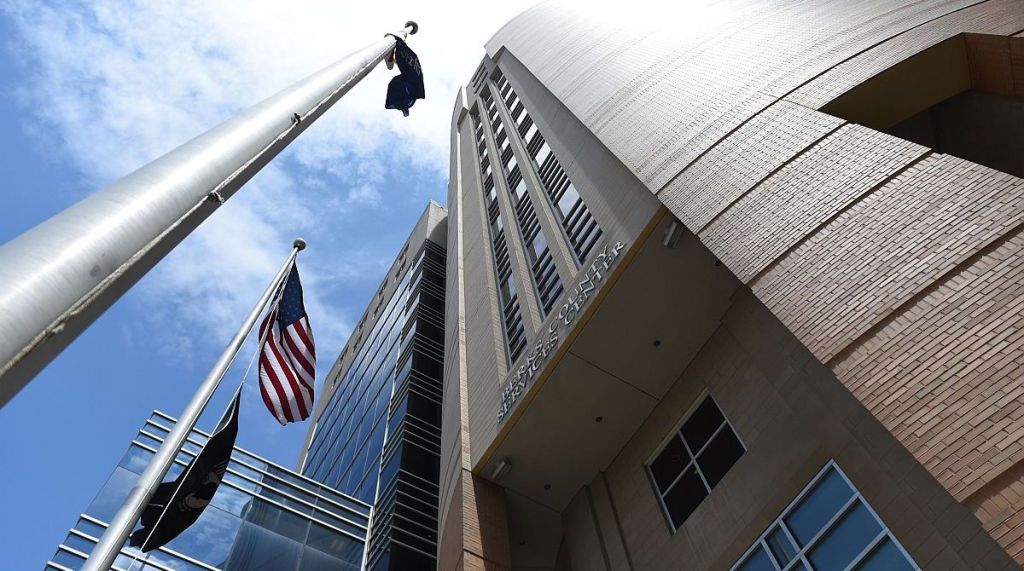Seven more military veterans have been inducted into the Berks County Military Hall of Fame.
The county commissioners, during their weekly meeting Thursday, accepted the nomination of the new inductees, bringing the total number to 87.
The hall of fame was founded in 2009 to recognize the men and women from the county who demonstrated gallantry in combat or achieved notable accolades for their military service. Berks is among only a few counties in Pennsylvania to honor its veterans with a hall of fame.
Each year the county assembles a volunteer representative from each of the branches of service to review nominations and present the names to Jay Ostrich, director of the county veterans affairs office, who presents them to the commissioners for approval.
The hometown heroes are honored at the annual Berks County Veterans Appreciation Dinner and Dance on Nov. 8.
The following are this year’s inductees and their achievements:
Army PFC Lawrence James Deisher
Deisher’s unit was involved in a combat operation near Dak To during the Vietnam War where they came under fire from an enemy force that outnumbered them. While exposed to withering enemy fire, Deisher killed two enemy insurgents. He continued his suppressive fire, allowing his squad to reposition to a more defensible position.
With complete disregard for his own safety, he continued to attack an enemy machine gun getting within 15 meters of the powerful weapon. After killing two more enemies, Deicher was fatally injured by a burst of enemy machine gun fire.
The Reading resident was posthumously awarded the Silver Star for unparalleled bravery and tactical prowess that resulted in the neutralization of an imminent threat.
Marine PFC William Weitzel
During the Korean War, Weitzel was part of a six-man reconnaissance patrol when they were attacked. He was wounded in the attack but continued to deliver accurate fire to assist the withdrawal of the patrol to a nearby outpost.
After clearing a path through the protective wire, Weitzel carried a wounded Marine to a trench, then continued to deliver suppressive fire. After his weapon became inoperative, he engaged the enemy combatants in hand-to-hand combat to protect his wounded comrade. After the enemy had withdrawn, he refused medical aid and walked to the main resistance so other casualties could be carried on stretchers.
The Spring Township resident was awarded the Silver Star for conspicuous gallantry and intrepidity.
Army Spc. Kenneth Wunder
Wunder served from January 1968 until his honorable discharge in January 1974, in which he was deployed for two tours in the Vietnam War.
But his biggest contributions here at home came later.
In 1980, Wunder became an advocate for veterans by starting a suicide hotline from his home — the first hotline in Berks to address veteran mental health.
He also founded the Reading Chapter of the Vietnam Veterans of America. He served as president of the local chapter from 1981 until 1986. The organization started with 25 members and has now grown to include more than 250 members.
For these actions, the Reading resident is considered the father of the Vietnam veterans movement in Berks.
Marine Lance Cpl. Larry Hoch
While serving as a squad leader in May 1967 during the Vietnam War, the platoon was preparing a night defensive position when it came under attack.
Hoch was seriously injured during the mortar attack, but when he saw his assistant squad leader exposed to a mortar attack he threw the Marine to the ground and shielded him. While engaged in this action, Hoch was mortally wounded by the explosion of mortar that impacted near the men.
The Allentown native was posthumously awarded the Silver Star for conspicuous gallantry and intrepidity in action.
Army Tec 5 Arnold Blattel
Blattel was a tank driver who landed on Omaha Beach during World War II. According to the official record of Omaha, the tanks saved the day.
The Reading resident subsequently saw action in northern France, Ardennes, Rhineland and central Europe during the war. His unit was heavily involved in the advance into Germany, crossing the Rhine River, the relief of Bastogne, the capture of Cologne and liberating two concentration camps.
In 231 days in combat, his parent unit — the 3rd Armored Division — lost 2,540 soldiers and 632 Sherman Tanks.
Army Staff Sgt. Richard Palsgrove
Palsgrove served in World War II as a heavy mortar crewman where he fought in Algeria, French Morocco, Tunisia and Sicily before landing in the second wave at Omaha Beach. Once on the European continent, he fought in Normandy, northern France, the Rhineland, Ardennes and central Europe.
The Reading resident was awarded the Bronze Star for heroic actions in connection with enemy actions in the vicinity of Heistern, Germany, in November 1944. When his mortar ammunition was expended, he drove along an exposed road vulnerable to intense enemy artillery fire to replenish the supply.
After his honorable discharge from the Army, Palsgrove joined the Pennsylvania Air National Guard in 1947 and served in various leadership positions. He would retire in 1980 with nearly 37 years of military service.
Army Col. Edward Zglenski
While serving as a platoon leader on a reconnaissance operation in the Vietnam War, Zglenski’s unit was encountered by an enemy force. In the initial exchange of fire, the unit sustained several casualties.
Immediately, Zglenski maneuvered his platoon to a position from which he could direct the fire of both platoons. With complete disregard for his safety, he organized and led a carrying party to evacuate the fallen soldiers. When the enemy attempted to outflank his element, he shifted his unit to suppress the attack.
The Boyertown resident was awarded the Bronze Star and the Silver Star for his actions.

